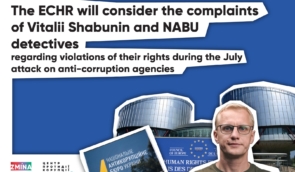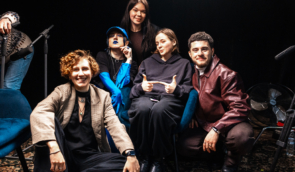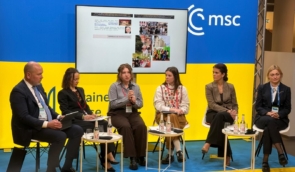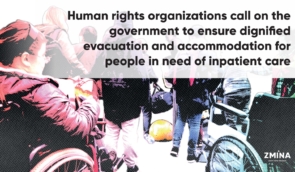Women support each other, and it saves lives: the Girl Power panel at the Crimea Global
On 18 November, as part of the Third International Conference “Crimea Global. Understanding Ukraine through the South”, the fifth panel discussion “Girl Power. Women Against Violence and Oppression Worldwide” took place.
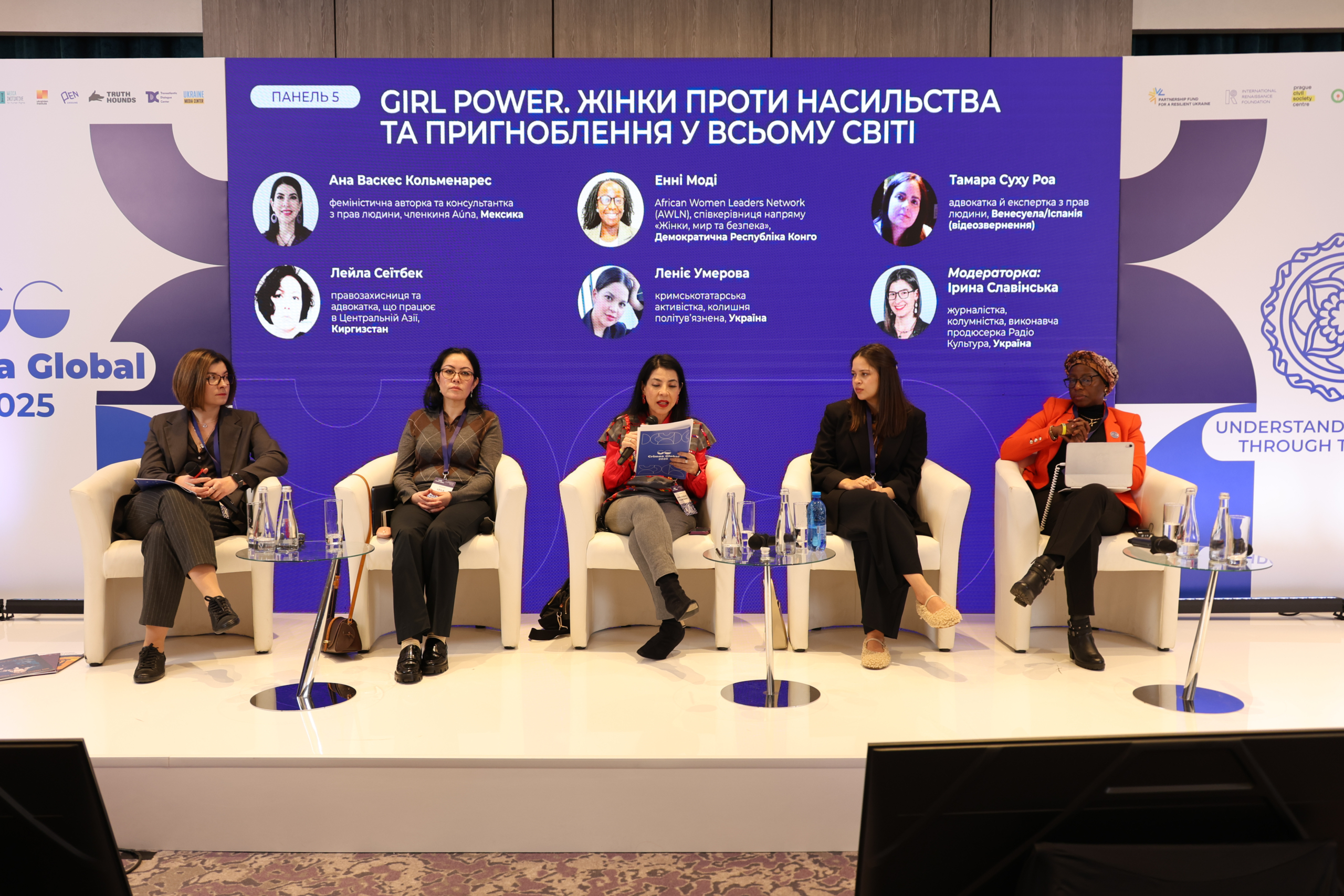
The panel discussion was joined by feminist author and human rights consultant, member of Aúna Ana Vásquez Colmenares, Co-Lead of the “Women, Peace and Security” program at the African Women Leaders Network (AWLN), Anny Modi, lawyer and human rights expert, Tamara Sujú Roa, human rights defender and lawyer, Leila Seiitbek, Crimean Tatar activist and former political prisoner, Leniie Umerova.
The discussion was moderated by Iryna Slavinska, a journalist, columnist, and executive producer at Radio Culture.
As part of the panel, a social video was presented featuring stories of women who survived Russian captivity, occupation and sexual violence. One of the women featured in the video was Crimean Tatar activist and former political prisoner Leniie Umerova.
Leniie Umerova said in her speech that the Russians abducted and arrested her when she was trying to visit her sick father in Crimea. According to Umerova, it was only after almost six months of imprisonment that the Russians told her she was accused of espionage, after which she was transferred to one of Russia’s most isolated prisons, where she ultimately spent a year and a half.
“Russia puts pressure on you every day. Every day, they demonstratively arrest people, put them in prison and present it in such a way as to deliberately intimidate everyone and say that tomorrow you could be the one in prison,” Leniie emphasised.
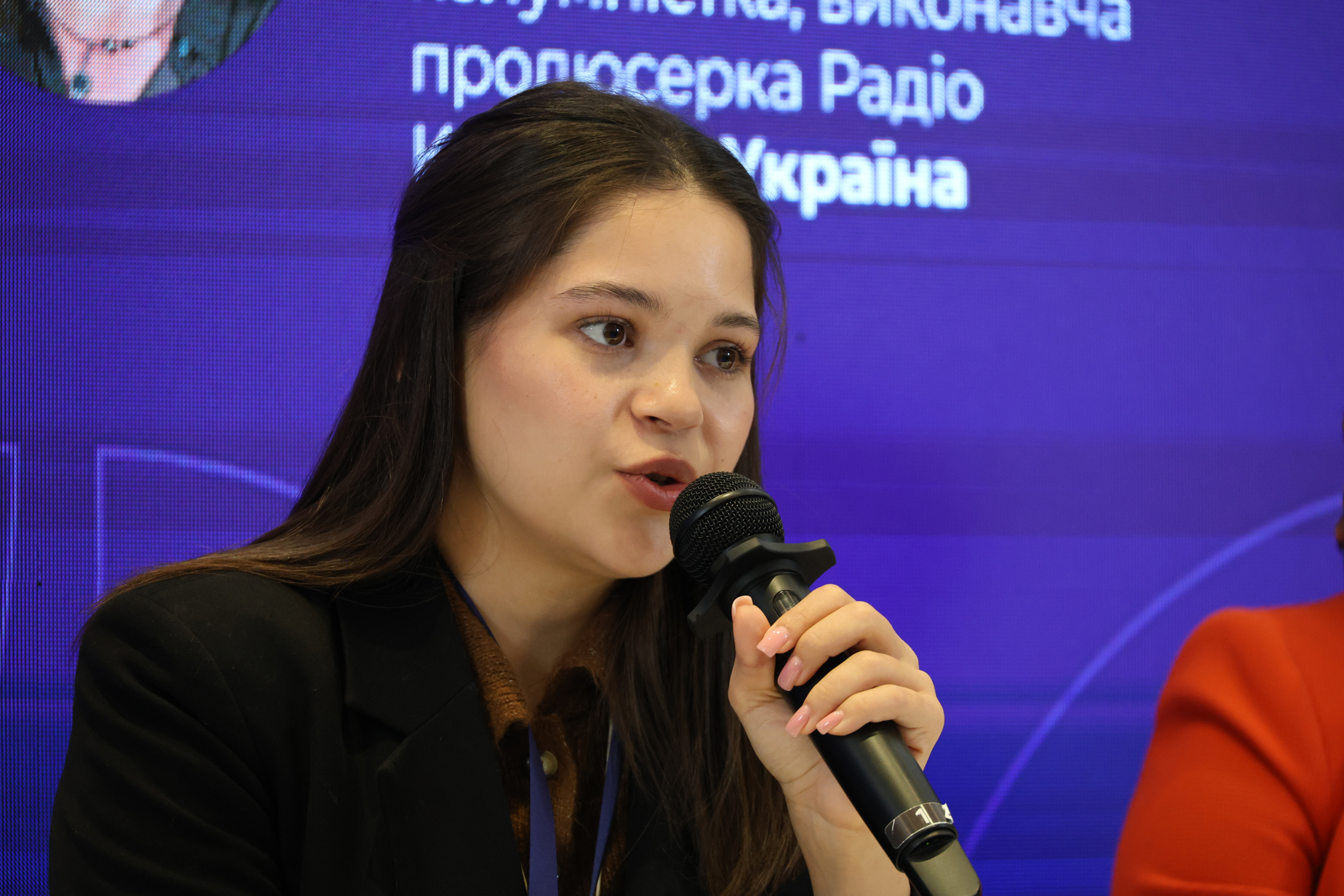 Photo: Leniie Umerova
Photo: Leniie UmerovaHuman rights defender and lawyer Leila Seiitbek noted in her speech that Russia’s political pressure on Kyrgyzstan is extremely powerful. In addition, their country is quite small, has limited resources and a population of just over six million, and therefore, in the event of armed Russian aggression, will not have sufficient forces to fight Russia. At the same time, Kyrgyzstan belongs to the club of so-called authoritarian regimes, along with Uzbekistan, Kazakhstan, Tajikistan, Turkmenistan, as well as Venezuela, Cuba and Iran. And the leader of this club is Russia.
“The regimes of authoritarian countries are built on a common religion, ideology, ideas of governance and the existence of political elites who continue to steal the resources of their own people. They enrich themselves at the expense of the people and remain in power permanently. Russia promises them the opportunity to remain in power permanently, impunity, and political support in the international arena,” says Leila Seiitbek.
On the other hand, according to the human rights defender, Kyrgyzstan provides Russia with many resources. In particular, in terms of human capital, Central Asia has great potential for recruiting young people into the Russian Armed Forces. The country also creates opportunities for money laundering through crypto platforms, which Russia actively uses, and conditions for the relocation of Russian businesses to Kyrgyzstan. In addition, Russia is putting a lot of pressure on the country to destroy civil society.
“Over the past few years, the authorities have shut down civil society organisations, and journalists have been forced to leave the country or face imprisonment. Several of my colleagues are behind bars on charges of attempting a coup and terrorist activities,” added Leila Seiitbek.
At the end of her speech, the human rights defender mentioned violence against women and girls in Kyrgyzstan, which is used to suppress women’s voices in the country.
“In order to keep women at home and silent, the authorities oppress and isolate active women. Women make up 50% of the population in our society. And for an authoritarian regime, the ability to keep 50% of the population in such conditions, in conditions of silence, actually makes their work much easier,” the human rights defender emphasises.
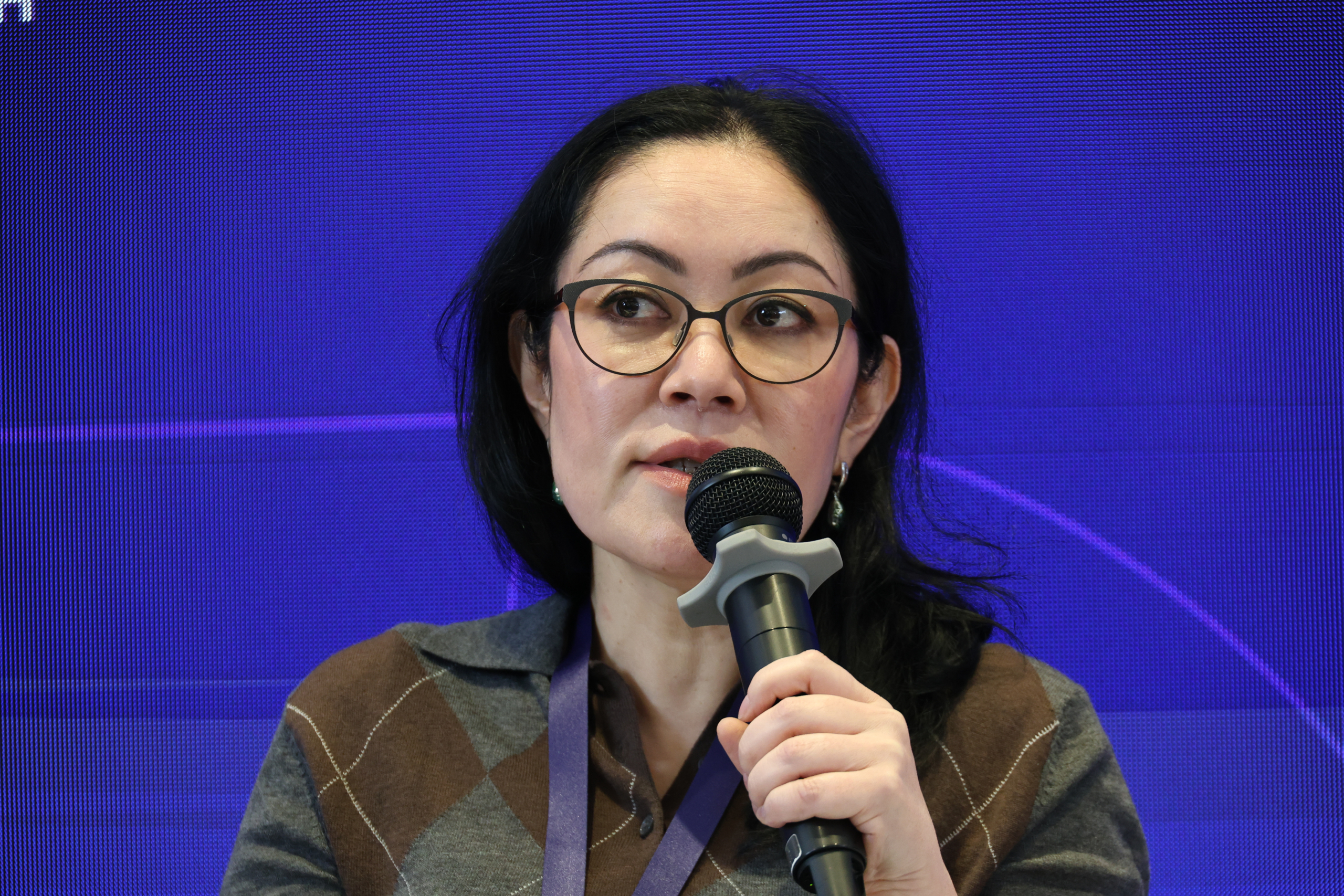 Photo: Leila Seiitbek
Photo: Leila SeiitbekTamara Sujú Roa drew attention in her speech to how women survive in authoritarian regimes and support each other. In her opinion, behind every statistic there is a woman, a mother, a sister, a wife, a daughter, who is forced to remain silent due to repression. At the same time, brave women help each other, disseminate important information, and care for the families of those who have been repressed. Women become a bridge that transmits knowledge and memory that authoritarian regimes want to hide.
“Supporting each other is important for women’s survival in authoritarian regimes, for the daily fight against them. Women can support each other by creating communication networks, using modern technologies, through joint events and conferences,” says Tamara Sujú Roa.
The human rights defender recalled the information campaign she led in support of political prisoners around the world. According to her, making such stories public in other countries prevents these people from disappearing and being broken.
“If I share this story, it will remain alive. Other people will be able to write letters to this person, support her family, publicly share her story on social media, and put pressure on politicians. Solidarity does not always open prison doors, but it weakens authoritarian regimes,” concluded Tamara Sujú Roa.
Anny Modi emphasised in her speech the similarities between the situation in the eastern part of the Democratic Republic of Congo, in the temporarily occupied Crimea and in other occupied territories of Ukraine, because in both places women suffer from violence and persecution by armed groups. She stressed that women there engage in humanitarian response and resist human rights violations despite the risks to their own lives and health.
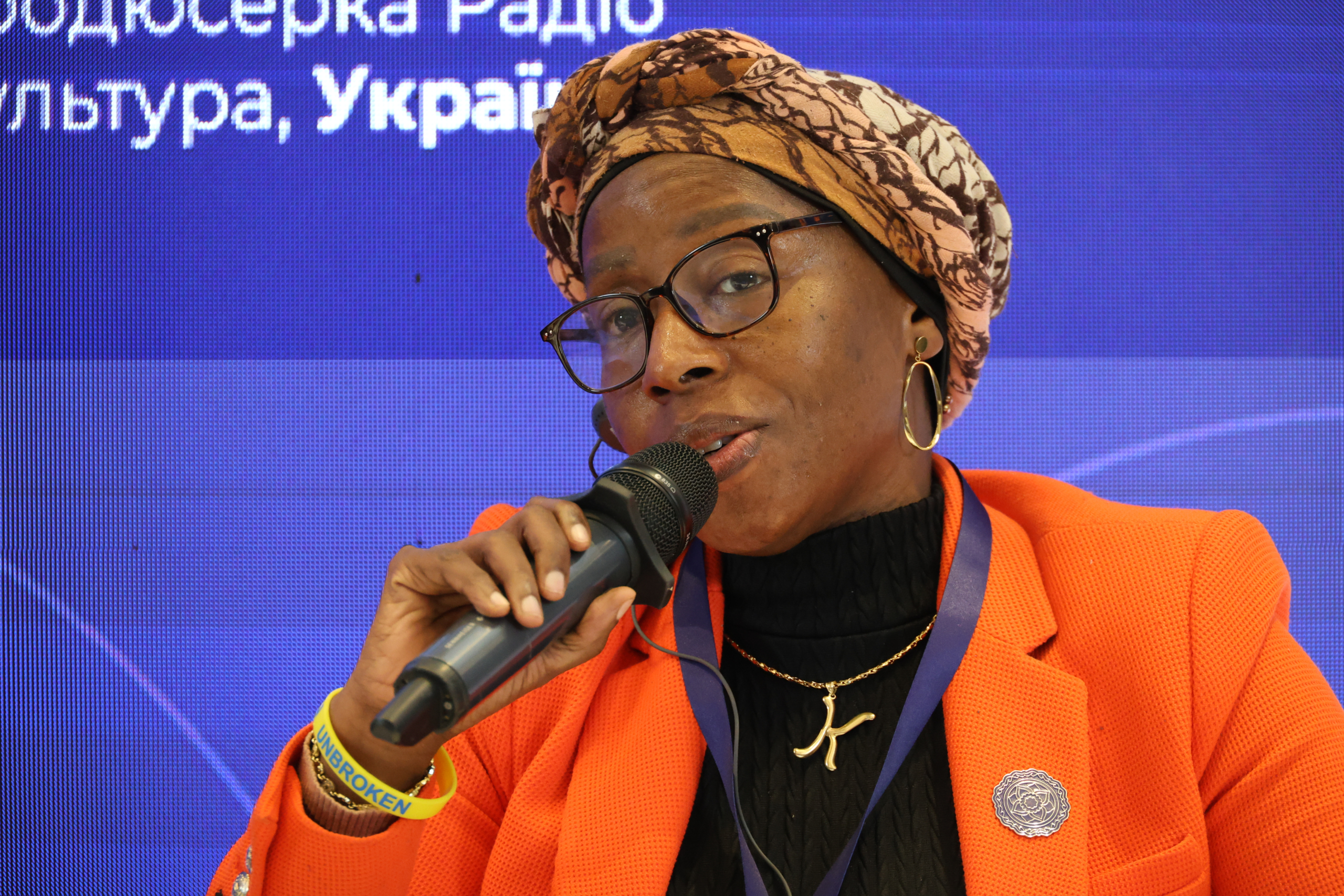 Photo: Anny Modi
Photo: Anny ModiAna Vásquez Colmenares emphasised during her speech that femicide is not simply the murder of women, but a political signal that the state tolerates violence and does not protect their lives. According to her, in different regions — from Latin America to Central Asia and Crimea, which is temporarily occupied by Russia — the forms of violence differ, but the logic is the same: control, fear and subjugation. She shared that in Ukraine, she saw a unique infrastructure of care — from Lviv’s UNBROKEN to women’s initiatives in frontline cities that document war crimes, help families and rebuild communities.
“The courage of Ukrainian women is not an abstraction. It is organised, practical, united — and the world needs to know this. And not only about the tragedy, the world needs to know about the exceptional leadership of Ukrainian women,” concluded Ana Vázquez Colmenares.
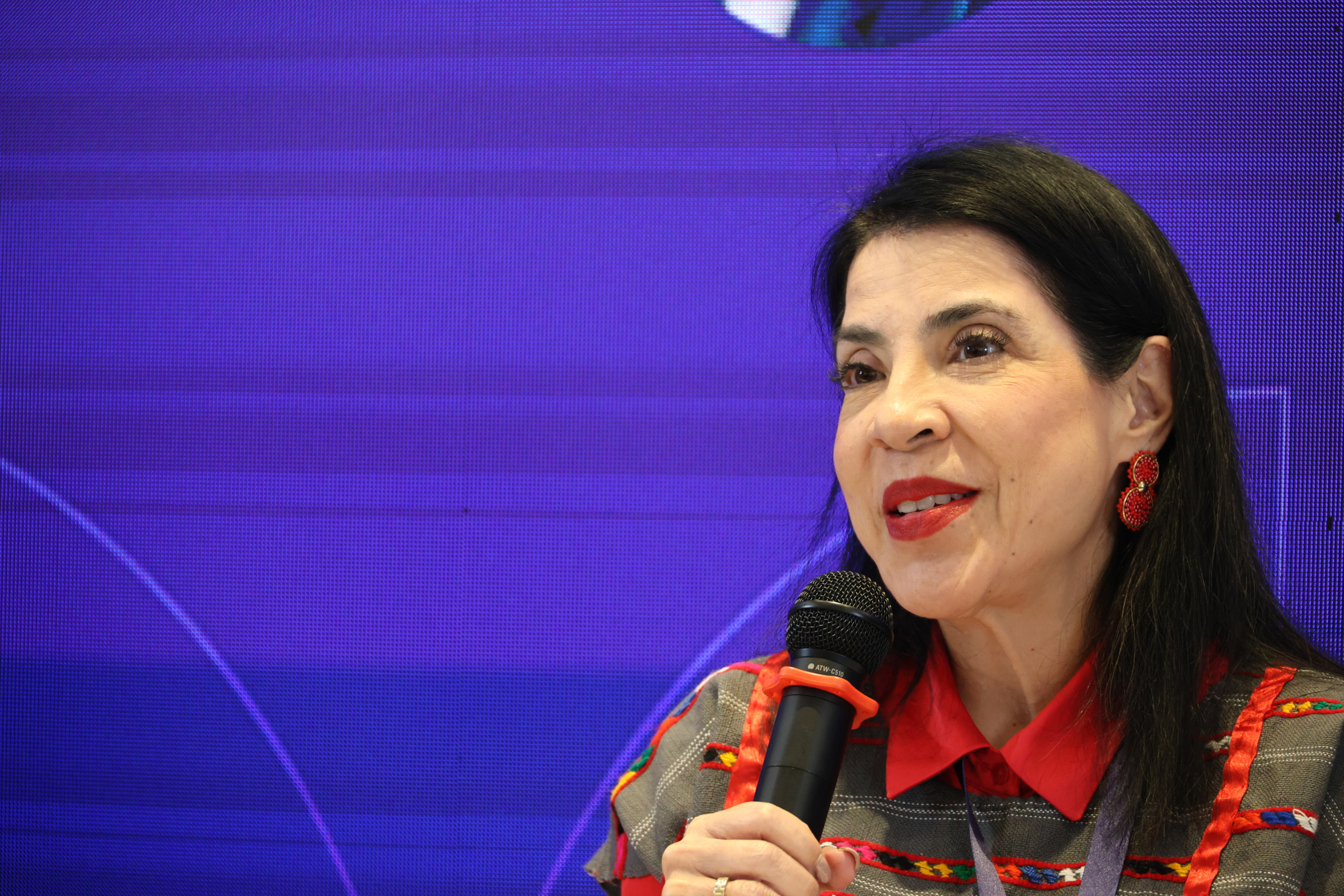 Photo: Ana Vásquez Colmenares
Photo: Ana Vásquez ColmenaresAs a reminder, on 17 November, the Third International Conference “Crimea Global” opened in Kyiv. The event was attended by over 200 participants from around the world, including leading experts, academics, journalists, human rights defenders, opinion leaders and representatives of international organisations.
On this day, three panel discussions were also held on the sidelines of the conference, devoted to Ukraine, Crimea and the global dimension, the use of new technologies, in particular drones, by authoritarian regimes against civilians, and the problems of modern journalism during the war between Russia and Ukraine.
In the evening, the SENS bookshop hosted a special commemorative art evening, “Memoria Orbis: Memory Holds the World”. The event honoured Ukrainian artists whose lives were taken by Russian aggression, yet whose creative legacy continues to sustain and unite our shared world.
On 14 November, conference participants visited Lviv, on 15 November, they continued their tour of Ukraine in Kharkiv, and on 16 November, guests of the Crimea Global conference arrived in Kyiv, where a closed roundtable event “Ukraine’s Resilience in War: Challenges, Responses, and International Support” was held at the Representative Office / Crimean Platform.
Organisers: Mission of the President of Ukraine in the Autonomous Republic of Crimea / Office of the Crimea Platform, Human Rights Centre ZMINA, Media Initiative for Human Rights.
Partners: Ukrainian Institute, PEN Ukraine, Truth Hounds, Media Centre Ukraine, Transatlantic Dialogue Centre.
The event was organised with the support of: Partnership Fund for a Resilient Ukraine, International Renaissance Foundation, Prague Civil Society Center, Askold and Dir Fund, administered by ISAR Ednannia and UN Women.
Photo credit: Mission of the President of Ukraine in the Autonomous Republic of Crimea
If you have found a spelling error, please, notify us by selecting that text and pressing Ctrl+Enter.

